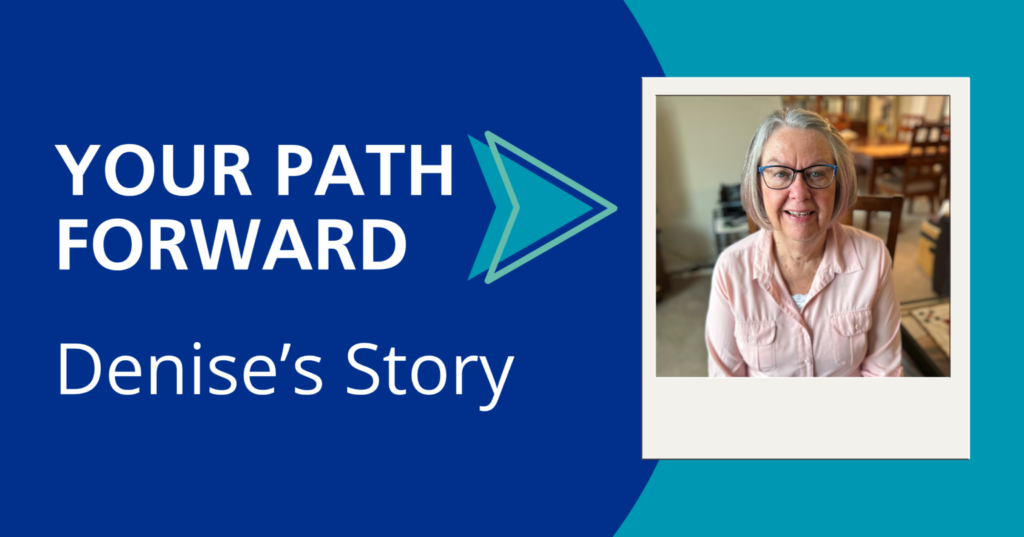Denise’s Story

My husband David lives with dementia. Living with someone and caring for someone who has dementia can be all encompassing. Everything you do is affected.
We got involved with the Alzheimer Society very early in this process. I’m glad we didn’t wait because the resources they provide have been helpful – especially the support groups. Talking to people who are in a similar situation and who can empathize or offer support to the everyday journey has made a world of difference.
I’ve really had to learn how to adjust because there’s no simple solution to planning when someone has dementia. You have to think through every step because if you don’t, things may not go as smoothly as you want. My plan is no longer for five or 10 years, my plan is, ‘how are we going to get through this week?’ It is more detail-oriented, and I’ve learned to take it one step at a time.
One of my biggest frustrations is with myself, that I’m not more patient. When I catch myself becoming impatient, I sit back and consider, ‘how important is this?’ The Alzheimer Society has provided me with the tools to let things go.
The people in my support group truly understand. I remember telling a story about getting frustrated and yelling in the backyard. The fact that you see the nodding heads, the smiling and the ‘yes, I get it, I understand’ is comforting, reassuring. I don’t have to pretend that things are okay in my group. I can tell the story exactly as it happened and always get a sympathetic or empathetic response.
The staff at the Alzheimer Society are very kind, understanding, supportive and welcoming. They are there to listen when I need to call somebody. They remind me that it’s okay to be happy and take time away from the demands of everyday life to do something I love, like my quilting. And then if I’m happier, I’m a better caregiver, a better support person and a better spouse.
It’s a long and unpredictable journey. Being involved with the Alzheimer Society has given me the book, and if I need something, I can look in the book, and I expect to find the page that I need to help me through the difficult moments.
Here are my tips to help others navigating dementia:
- Get help as soon as possible. The Alzheimer society truly does have resources, so use them. Don’t be embarrassed, just use them.
- Don’t pretend everything is okay because sometimes it’s not. If you surround yourself with people who understand and people who support you, things don’t feel quite as bad.
- It’s a good idea to get homecare on board early in the process. That way when you do need them, they are already aware of you.
- Don’t feel guilty about doing things you love. Take time for yourself, you will be happier and stronger for the person you are caring for.
- Recognize when you are feeling frustrated and just try and be kind instead.rself on dementia. Attend workshops, conferences or other learning opportunities through the Alzheimer Society.